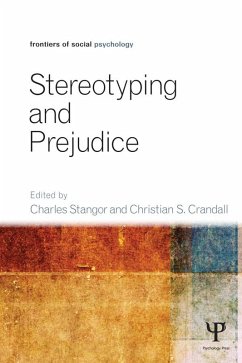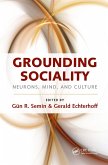This volume presents a contemporary and comprehensive overview of the great diversity of theoretical interests, new ideas, and practical applications that characterize social psychological approaches to stereotyping and prejudice. Written by internationally renowned scholars, the chapters cover fundamental principles, the social context of stereotypes and prejudice, and how they affect everyday life.
Dieser Download kann aus rechtlichen Gründen nur mit Rechnungsadresse in A, B, BG, CY, CZ, D, DK, EW, E, FIN, F, GR, HR, H, IRL, I, LT, L, LR, M, NL, PL, P, R, S, SLO, SK ausgeliefert werden.









